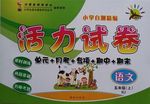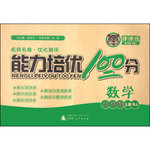题目内容
19.When I agreed to stage-managed my school's production of Guys and Dolls,I had no idea of(61)what a stage manager actually did.Still,I (62)decided(decide) that it would be a(n)(63)interesting (interest)experience,and a way to get involved with theater.Besides,if there was already a director and some technicians to build the sets and run lights,how much could there be (64)left(leave)for a stage manager to do?I figured that I would spend a lot of time(65)on rehearsals(彩排)and scripts(剧本).I was discouraged by the first rehearsal.I discovered that it was my (66)responsibility(responsible) to make sure that all of the cast actors were present,had scripts,and gave (67)me(I) their schedules before leaving the room.It was not an easy thing.I found that it was impossible (68)to get(get) all twenty-five cast members together for a group scene,since actors kept (69)calling(call)me with emergency appointments,and last-minute family gatherings.
Finally,it was the opening night.I sat to the side of the stage,(70)with my script open on a music stand in front of me.The lights came up,the show began,and I knew that it had all been worthwhile.
分析 作者在本文中讲述了自己一次难忘的经历.有一次作者被安排参加学校的音乐剧 Guys and Dolls的排练,他对剧本了解很少,但还是决定了参与这项活动,因为他认为这将是一个很有趣的经历.作者认为他应该把大量时间放在彩排和剧本上.在第一次彩排中作者遇到了问题,他发现这根本不是一件容易的事情.最终,音乐剧上演了,当作者坐在舞台前,灯光亮起表演开始时他知道所有一切都是值得的.
解答 61.what;考查引导词,这里关系代词what引导一个定语从句,作介词of的定语.
62.decided;考查动词时态,短文用的是过去时态,前后时态要保持一致,所以动词decide要用过去时态.
63.interesting;考查分词作形容词,分词作形容词时现在分词修饰物,形容事物的性质;过去分词修饰人,形容人的心理感受;句中修饰的是experience,故用现在分词.
64.left;考查动词语态,分析这个句子,主语和动词leave之间是被动关系,所以动词要用被动语态.
65.on;考查固定搭配,"花费时间做某事"用"spend time in doing sth"或"spend time on sth",空格后面rehearsals是名词,所以此处用on.
66.responsibility;考查名词,形容词性物主代词my后面要跟名词形式,所以空格处用名词形式.
67.me; 考查人称代词,此处用在动词give之后,所以用宾格形式me作动词give的宾语.
68.to get; 考查固定句型,It is+形容词+(for sb)+to do是固定句型,不定式短语在句子中作真正的主语,it在句中作形式主语.
69.calling; 考查动名词,结合上下文句意,空格处用动名词形式,keep doing意为"一直不间断地作某事"
70.with;考查介词,这里介词短语作伴随状语,意为"我坐在舞台的边上,剧本摆在我面前".
点评 首先要通读全文,了解大意,抓住上下文语境所提供的信息,仔细分析带空格的句子,明确空格所要填的词义,词型和短语搭配给出所要填的正确形式,然后整体阅读短文,核对答案

 激活思维优加课堂系列答案
激活思维优加课堂系列答案 活力试卷系列答案
活力试卷系列答案 课课优能力培优100分系列答案
课课优能力培优100分系列答案| A. | shall | B. | must | C. | should | D. | can |
| A. | Providing | B. | Provided | C. | To provide | D. | Being provided |
| A. | should have known | B. | would have known | ||
| C. | must not have known | D. | might not have known |